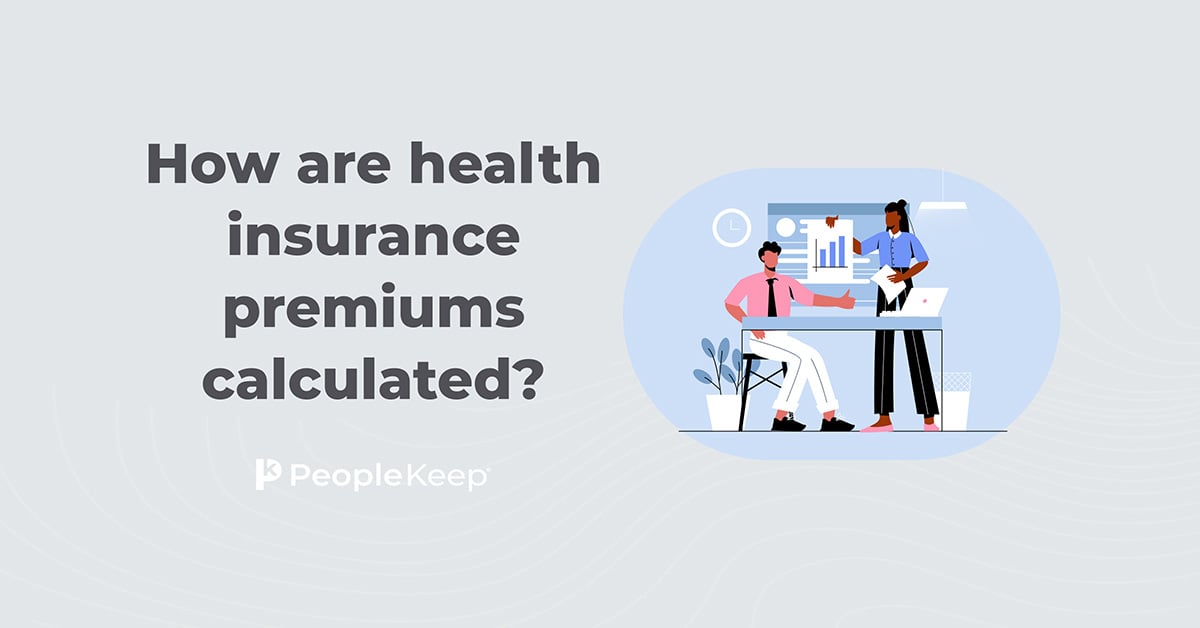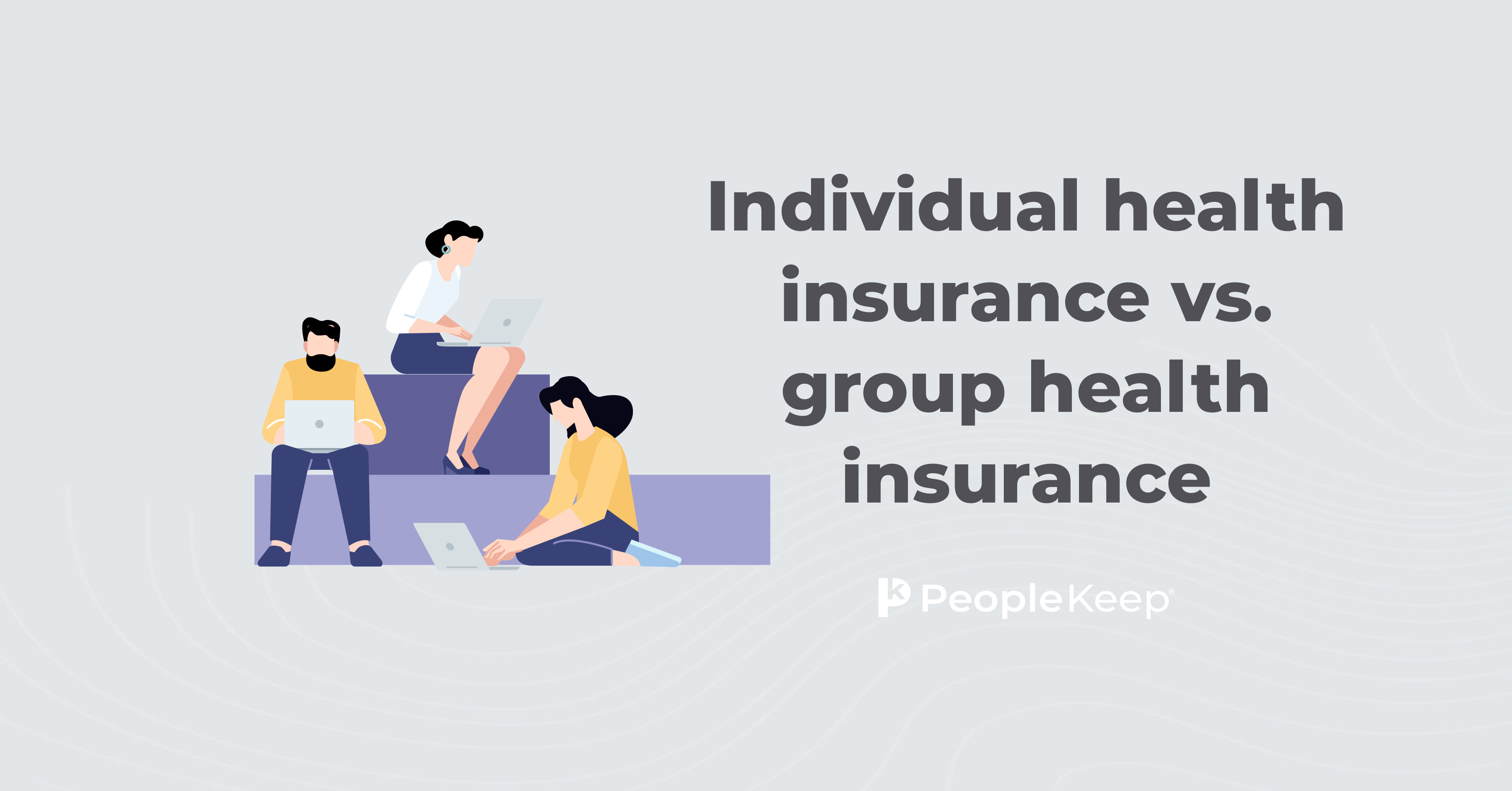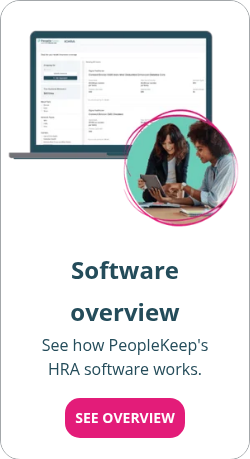How to choose a health insurance broker
By Elizabeth Walker on September 4, 2024 at 8:39 AM
Securing health coverage seems like it would be quick and easy. But, comparing policies, understanding provider networks, and understanding what health insurance terms mean leaves many people stumped. Whether you’re an individual consumer or a small business owner, shopping for health insurance is a critical decision. That’s why many people hire a health insurance broker to help guide them on their journey.
A health insurance broker is an industry professional who helps individuals and small employers find the best health plan. Working with an insurance expert in the healthcare industry who prioritizes your unique needs is essential. But with so many brokers out there, how do you know who’s the right choice?
In this article, we’ll give you six tips to consider that will help you choose the health insurance broker for your small business or your family.
In this blog post, you’ll learn:
- What factors to consider before choosing a health insurance broker.
- What services brokers should offer small business owners and individuals.
- How you can verify an insurance broker’s qualifications.
1. Consider your needs
Before a client buys a health insurance plan, a broker will review their personal and business needs as well as any risks. Then, they recommend policy options, prepare insurance quotes, and review plan details. But brokers can only do this once clients know what they want. That’s why your first step is to list what you’re looking for in a health plan.
Below are a few things small employers should consider when looking for a broker:
- Your health benefits budget.
- Whether you want a traditional group plan or an alternative benefit, like a health reimbursement arrangement (HRA).
- If it’s your first time offering health insurance, you may need help setting up and designing the plan.
- If you already offer benefits, are your employees happy with them? How often do they use the benefits? Low usage can show that your existing benefits aren’t meeting their needs.
- If you need ongoing support, find a broker to help with various administrative tasks, like open enrollment, claim processing, benefit renewal, answering your employees’ questions, and more.
If you’re looking for individual insurance, consider the following:
- Your budget, including the most you can pay for premiums and your out-of-pocket limit.
- You and your dependents’ healthcare needs.
- Any preferred insurers, networks, or plan types
- If you need any ancillary benefits, like vision or dental plans.
Once you know what you want, you can search for a broker who offers what you need. Above all, it’s vital to work with a broker who can explain insurance information clearly and concisely so you know what you’re getting. A successful broker should also communicate any compliance regulations, plan changes, and important deadlines.
2. Confirm their qualifications
Brokers must have a license in their state to sell health insurance policies. They do this by typically passing a licensing exam. Most states also require a background check, fingerprints, and a set number of training hours before taking the exam. After they get their license, they typically must renew it by completing required education courses to stay compliant.
To ensure they’re a reputable broker, ask them to show you their credentials. You can also check with your state’s Department of Insurance to confirm that their license is current. Reputation websites can also give you insight into the broker’s professionalism.
3. Read reviews and get referrals
An online search is the simplest way to find a health insurance broker. If brokerage firms are in your area, you can see what locals are saying by checking reviews. You can find them on their company website, Google, social media, and other platforms. However, casting a wide net may not bring the best results.
If they’re available, client testimonials may be more helpful. Online reviews may be brief interactions with a broker that provide little details. However, testimonials often come from clients who have worked with the broker for a longer period of time. They may offer you more context into what it’s like to work with them.
Client testimonials provide you with insight into the broker’s:
- Track record
- Customer service abilities
- Communication skills
- Response time to questions
- Reliability and professionalism
- Experience in the healthcare industry
For a more personalized approach, you can get a referral from friends, family, or other business owners who have health insurance. A personal recommendation is the best way to find an insurance professional. You can speak to the person firsthand and find out what they liked about their experience and why they’d recommend them.
4. Check for hidden broker fees
Most brokers offer their services free of charge to the client. Instead of charging you, the insurer pays them a commission rate once the broker sells you a policy. This is the case even though the broker doesn’t work for the insurance company as an employee.
But, some brokers charge small fees for their services. These could be consultation charges or in-person support fees. Some may have an extra broker fee for selling supplemental plans and benefits. While these fees aren’t common, they can happen—and you may not have budgeted for them.
Because most brokers don’t charge a fee, reading the fine print is important to ensure you’re not paying for a service you didn’t expect. This is crucial if you’re an individual or a small employer with a limited budget. In either case, you won’t want any surprise charges.
5. Make sure they’re experienced
In 2023, there were 417,730 insurance brokers and agencies in the U.S1. As health insurance costs continue to rise, more brokers are becoming available. But more doesn’t always mean better. It’s vital to find a broker who is experienced enough to meet your unique needs and will work hard to keep you a happy and satisfied client.
Here are a few things to consider when looking for an experienced broker:
- Look for a broker with years of experience in your state. This is crucial to helping you understand your state health coverage options in addition to national plans.
- Consider a broker who specializes in health insurance policies. Brokers can be licensed to sell a wide range of insurance policies, such as auto, life, home, and more. But to ensure they’re experienced in the health insurance industry specifically, it’s best to choose one with a narrow focus.
- Ask if they service small businesses, individuals, or both. If you’re a small employer, you’ll want to ensure you work with someone who understands small businesses and their challenges. A large group broker may not give you the time and consideration you need to secure the best coverage.
- Brokers who work with individuals have experience in the individual health insurance market. This is great for consumers but can also help small employers with an HRA. This is because employees may need help shopping for individual health plans.
“For smaller companies, a broker acting as a strategic partner is key,” said Casey Heer, President of Casey Insurance Group. “They should thoroughly know your business and provide custom options to your specific risks and budget. You should also work with them annually to review policies and simplify claims. Though finding the right broker takes time upfront, their guidance and advocacy can save you money and prevent headaches down the road.”
The best perk about using a broker is that they work for you—not for an insurance company. If you know what you’re looking for, ensure they’re knowledgeable, experienced, and unbiased enough to help you meet your goals. If not, your search for the right broker must continue.
6. Know what services they offer
Hiring a broker shouldn’t be about getting the cheapest price for a health plan. Successful brokers work with various insurance providers. They know about different plans and services. Before deciding to work with a broker, review their services to ensure they can help you reach your goals.
An effective broker should help you find a variety of the following plans and services:
- Major medical plans
- Ancillary policies
- Wellness programs and services
- Alternative health benefits
- Claim services
- Help with compliance
- Support with enrollment
- Quote comparison
They can give you peace of mind by tailoring their services to your specific needs and drafting a robust presentation of available plans. That way, you’ll know you have access to everything you need in one place.
An alternative to brokers for small businesses
Brokers provide essential services. But, many small businesses can’t afford group health insurance. They also may not meet a plan’s minimum participation requirements. In this case, small employers can turn to alternative health benefits.
Many brokers are turning to alternative health benefits like HRAs to find solutions for their clients. But employers can also work directly with a benefits administrator. If you’re a small business looking for an affordable health benefits option, an HRA may be right for you.
An HRA allows employers to tax-free reimburse their employees for qualifying medical expenses. These can include individual health insurance premiums and more than 200 types of out-of-pocket expenses.
Popular HRAs include the:
- Qualified small employer HRA (QSEHRA): This HRA is for small businesses with fewer than 50 full-time equivalent employees (FTEs) who don’t offer a group health plan.
- Individual coverage HRA (ICHRA): The ICHRA is for organizations of any size. Only employees with a qualifying form of individual health coverage can participate.
If you want to learn more about HRAs, our HRA specialists are happy to help. Our HRA administration software makes it easy to set up and manage your benefits in minutes.
Conclusion
Putting your health insurance coverage in experienced hands helps you stay healthy long-term. Using a broker gives you access to industry knowledge, personalized plan options, and top-notch customer support to help you find your perfect policy. But, there are key factors you must consider before making your choice. Remember to look up their qualifications, experience, reviews, fees, and services before making an informed decision about the best broker for you.
FAQs about choosing a broker
Why would someone use an insurance broker?
Consumers use an insurance broker to help them find and buy the right insurance policy. Brokers have a deep knowledge of the insurance marketplace. They also consider their client's needs and risks before recommending any policy.
Because of their expertise in the complexities of working with insurers, brokers can help individuals sort through review plan types and details, compare quotes, and answer questions. This white-glove service makes consumers feel better informed about their chosen policy.
What is the difference between an insurance agent and a broker?
Insurance agents and brokers are both licensed professionals who can help consumers buy insurance policies. But they have key differences. Brokers don’t work for insurance companies. They work directly for their clients and can help them compare and shop for policies from many insurers. This helps clients get the best plan possible.
In contrast, insurance agents work for a single insurance company. They typically only sell policies from the insurer that employs them. While they also help consumers select a plan, they represent the insurance company throughout the process.
What are the benefits and disadvantages of using an insurance broker?
There are pros and cons to working with an insurance broker. Brokers can save you time when shopping for and enrolling in a policy. They can also help you with the claims process and provide quick and accurate information when needed. They are also knowledgeable in their field. Brokers also receive commissions from carriers. So, there’s usually no added cost to the consumer for using one.
But, some brokers may be new to the industry. They can have less experience, be familiar with fewer insurers and current policies, or be less professional. That’s why it’s crucial to do your research before choosing which broker is right for you.
Check out more resources
See these related articles

How are health insurance premiums calculated?
Ever wonder how health insurance premiums are determined? This comprehensive blog breaks down the factors that influence the cost of your health insurance.

How to get help choosing an individual health insurance plan
Need help choosing health insurance? Explore how to compare individual plans, get expert guidance, and find coverage that fits your needs and budget.

Individual health insurance vs. group health insurance
Wondering how group insurance differs from individual insurance? Find out in this comprehensive guide and make an informed choice for your organization.



